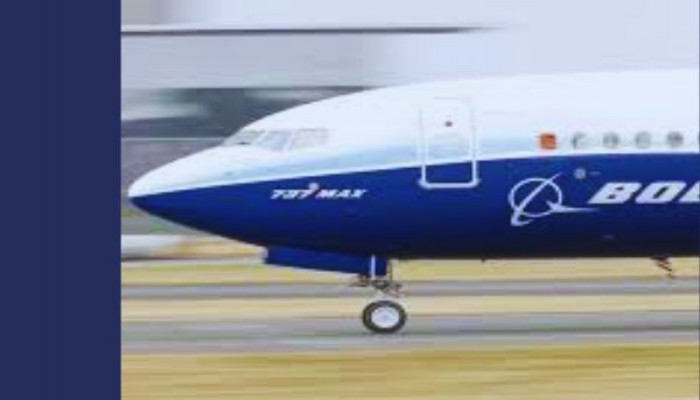China tells airlines to stall jet deliveries from Boeing
- In Reports
- 09:18 PM, Apr 15, 2025
- Myind Staff
Amidst trade wars with the US, China has ordered its airlines to stop any further purchases of Boeing aircraft, according to a report by Bloomberg. After China raised its tariffs to 125% on US goods in response to Chinese imports totalling 145% under Trump’s rule in the US, this order was passed shortly.
Impact of the Order on the Airlines
It was said that Beijing had been planning ways to support the airlines that lease Boeing jets and are facing higher costs. It was also reported that around 10 Boeing 737 Max jets are currently being prepared for Chinese airlines, according to sources cited by Bloomberg. If the necessary paperwork and payments for some of these aircraft are finalised before China’s “reciprocal” tariffs come into effect, there is a chance they could still be allowed into the country.
Boeing in the Centre of a Trade War
As the trade tensions between the U.S. and China continue to increase, Boeing feels the pressure of it. The latest restrictions have become a huge hindrance for Boeing, especially as companies like Ryanair reconsider their aircraft delivery schedules.
Michael O’Leary, CEO of budget airline Ryanair, told the Financial Times that his airline may push back deliveries of Boeing planes if costs rise due to tariffs. Ryanair is scheduled to receive 25 jets starting in August, but O’Leary said the airline doesn’t actually need them until March or April 2026. “We might delay them and hope that common sense will prevail,” he said.
Boeing has lost 7% of its market value since the beginning of the year. It is reported that shares have fallen not just because of tariff concerns but also due to criticism from shareholders over underinvestment in its engineering. In March, Chief Financial Officer Brian West said that tariffs could affect the availability of parts from suppliers.
Market instability due to Tariffs
The effect of this trade war is not just limited to Boeing, but also its European Competitor, Airbus. On Tuesday, Airbus CEO Guillaume Faury said the company is closely monitoring the trade situation and admitted that they’re facing issues getting components from U.S.-based supplier Spirit AeroSystems. This delay is affecting the production of their A350 and A220 jets.
Due to the tariffs implemented by the US President Donald Trump, the entire market is facing extreme instability. A slight recovery was observed in electronics like smartphones and laptops after Trump paused tariffs on these sectors, the investors are still not confident.
The S&P 500 index rose by 0.7% in early trading on Tuesday, but it’s still down about 7% this year. Potential tariffs on computer chips and pharmaceutical imports is also a big concern as the administration has launched an investigation to understand how these sectors could affect the national security of the country.
Nvidia has announced plans to invest up to $500 billion in building artificial intelligence infrastructure within the U.S. over the next four years, which has further aggravated the uncertainty.
Stock Markets Across the World
In Asia, Japan’s Nikkei index climbed 0.8% and South Korea’s Kospi rose 0.9%, followed by strong performances from the automotive industry like Honda, Suzuki, and Hyundai. This occurred shortly after Trump said that the government might be able to provide support and encouragement in the automobile industry.
“We’re looking at something to help some of the car companies,” Trump told reporters, noting they “need a little bit of time” before they can shift parts production to the U.S. from places like Canada and Mexico.
Previously, the U.S. imposed a 25% tariff on all imported cars, with some exceptions for Mexico and Canada. Analysts at advisory firm Telemetry have analysed the consequences of this decision and said that it could lead to 1.8 million fewer car sales in North America this year.
In Europe, the FTSE 100 in London gained 0.8%, while the FTSE 250, which focuses more on domestic companies, rose 1%.
The comments from the U.S. Vice-President JD Vance, who expressed a potential trade deal with the UK. in an interview with UnHerd on Tuesday, Vance said, “We’re certainly working very hard with Keir Starmer’s government” on an agreement. “There’s a real cultural affinity. And, of course, fundamentally, America is an Anglo country. I think there’s a good chance that, yes, we’ll come to a great agreement that’s in the best interest of both countries.”







Comments